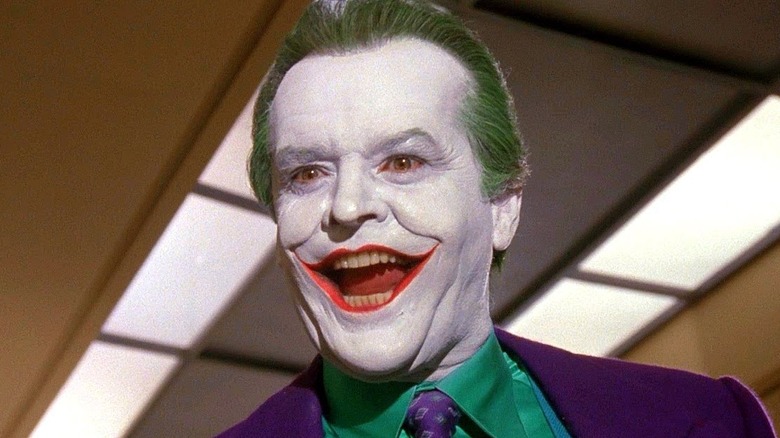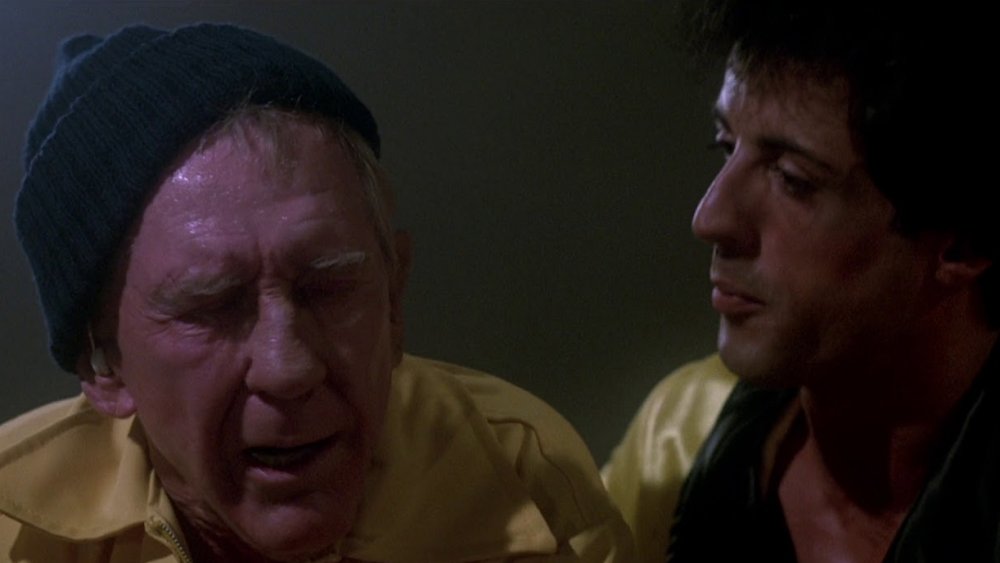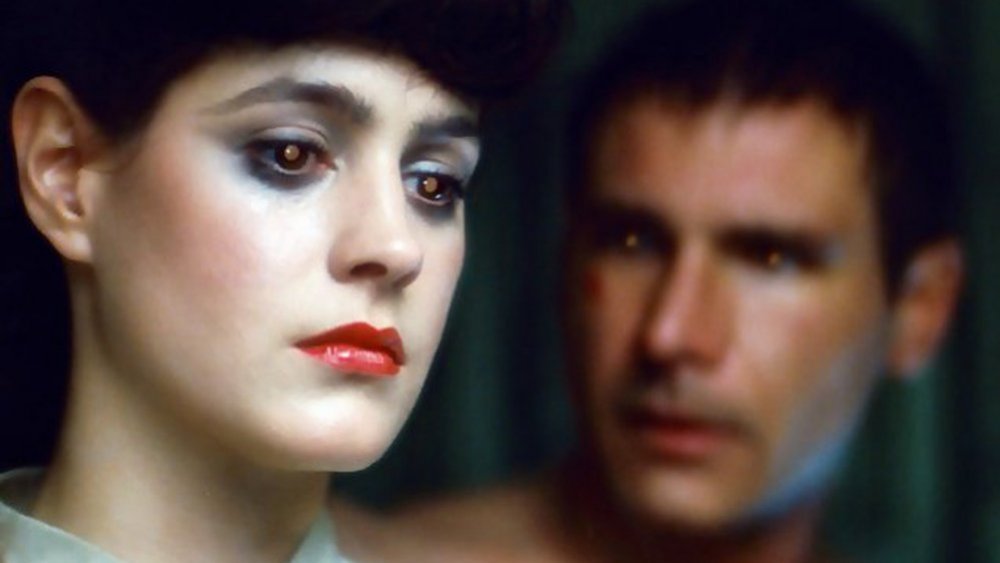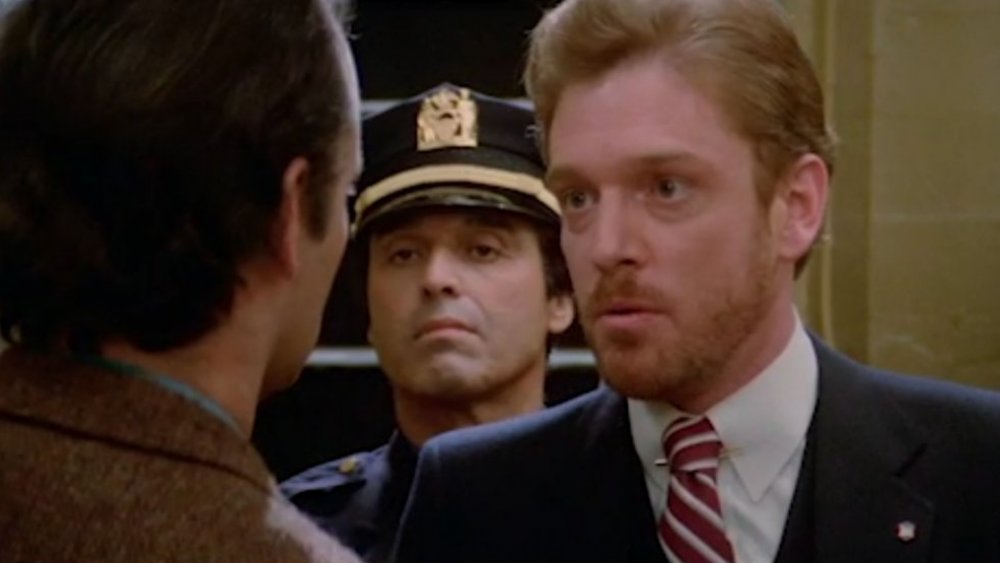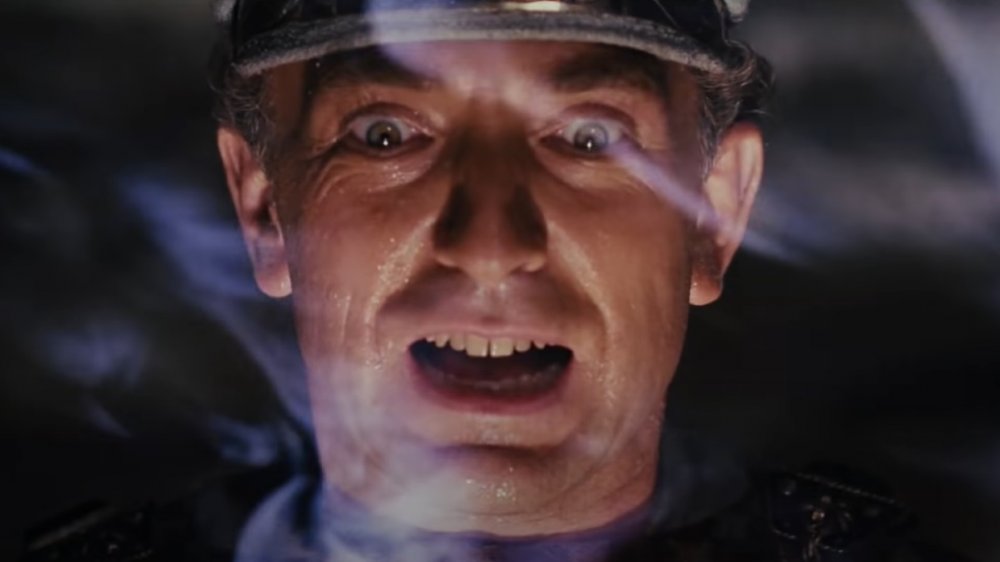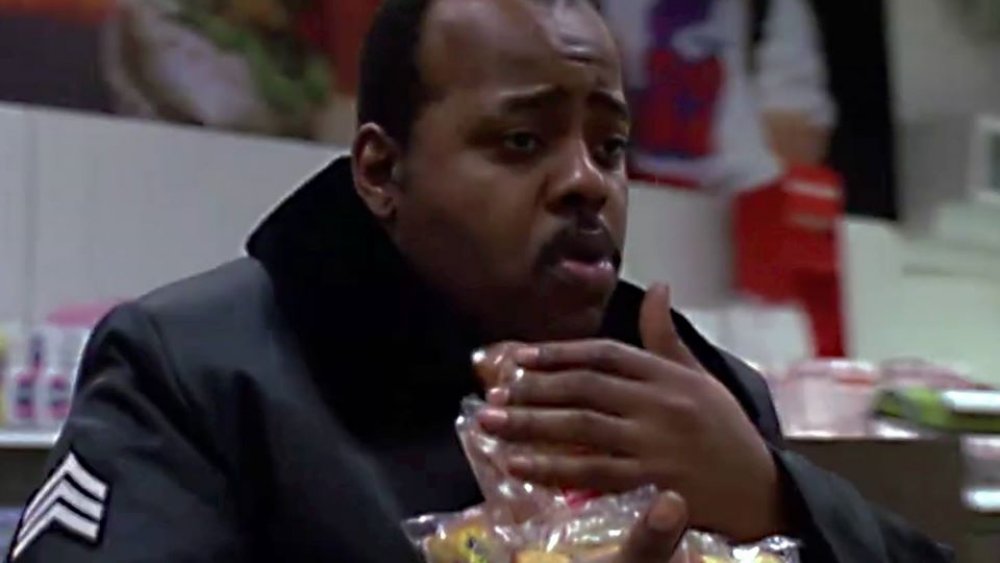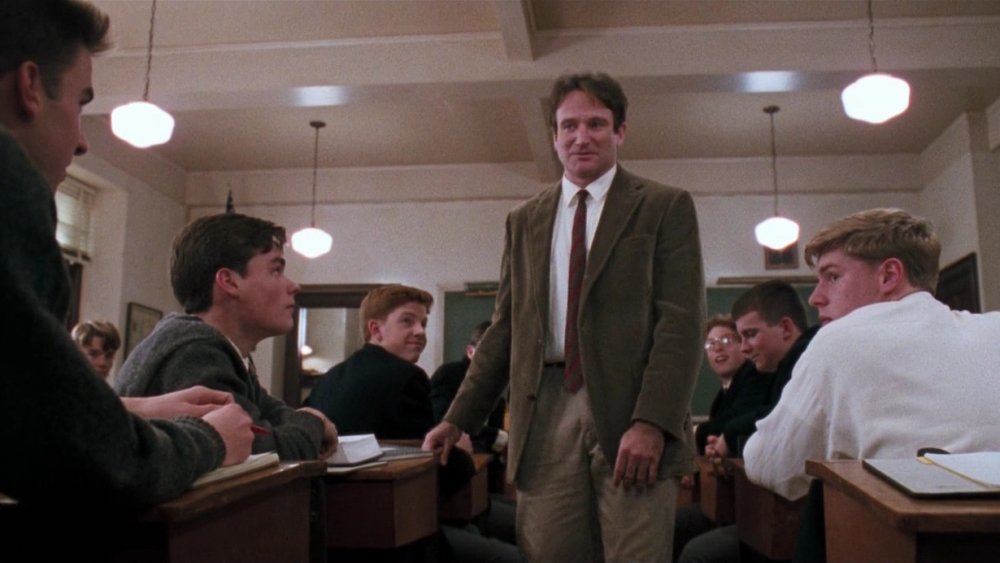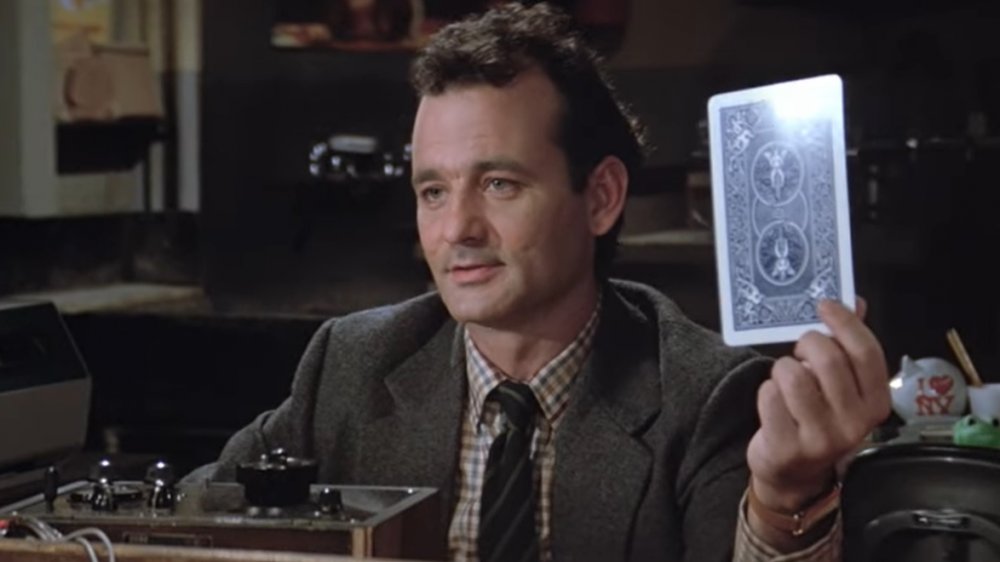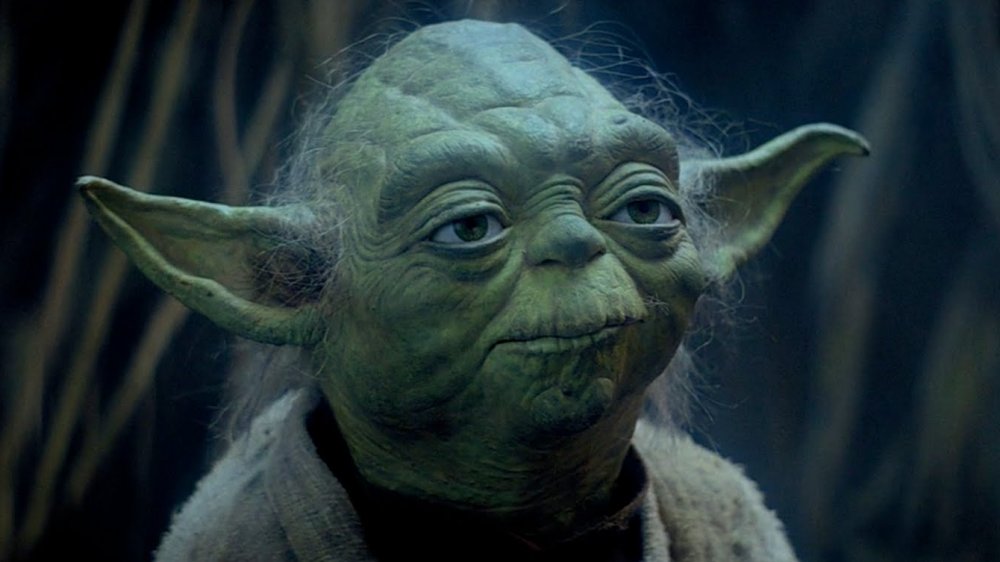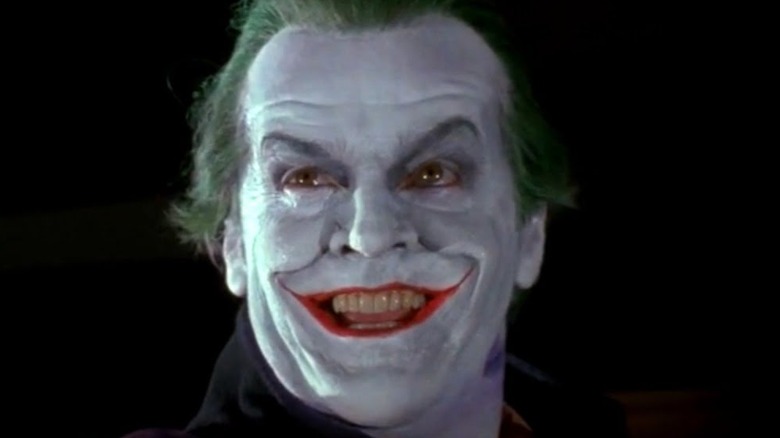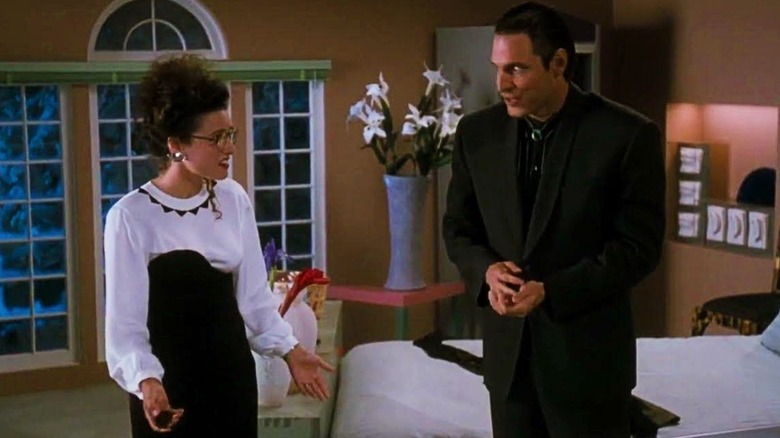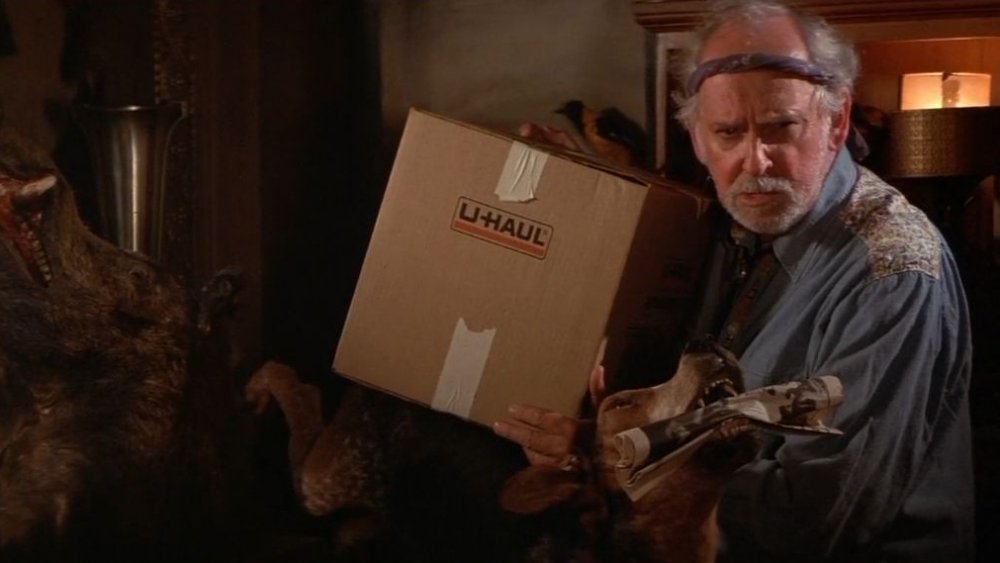Messed Up Things You Never Noticed In Your Favorite '80s Movies
If you spend enough time thinking about the specific details of hit movies, it becomes easy to get accused of reading too much into things. Movies want to steer us in specific narrative directions. If we're watching, for example, an exciting car chase, we're not supposed to think about all the nameless civilians whose cars are getting totaled during the pursuit. We're not supposed to stop to wonder if our favorite heroes are indirectly killing dozens of innocent civilians in pursuit of the bad guy. And if we start talking about it with our friends, we're often met with, "Come on, it's just a movie."
But sometimes the disturbing consequences of the heroes' actions are just too glaring to ignore. That's why so many fans were bothered by just how many Metropolis citizens would've been killed in the climactic battle of 2013's Man of Steel. Sure, it's just a movie, but it can be tough to enjoy if something like that is being ignored by the storytellers.
And the movies of the '80s weren't immune to such narrative tunnel vision. Whether it was because the filmmakers just ignored them, didn't think of them, or were well aware of them and wanted the audience to find them on their own, there are plenty of examples of disturbing or just plain confusing things in great '80s cinema. Here are some perfect examples of messed up things about your favorite '80s movies that you never noticed before.
In Rocky III, there was no justice for Mickey
One of the films that made Mr. T an '80s household name was 1982's Rocky III. Mr. T played Clubber Lang, a powerful new boxer who's gunning for Rocky Balboa's (Sylvester Stallone) championship title, convinced the "Italian Stallion" has grown soft. Shortly before their first fight, Balboa and Lang trade words backstage, and soon, things get physical. In the melee, Lang shoves Rocky's elderly manager, Mickey (Burgess Meredith), into a wall, triggering a heart attack. Rocky wants to call the match off, but Mickey insists he fight. The old manager dies shortly after the fight concludes with Rocky getting knocked out in the second round.
Unbelievably, Lang never faces any kinds of consequences for Mickey's death. He's a professional boxer who, at the time of the incident, is a contender for the world heavyweight championship. In front of dozens of witnesses, many of whom are holding cameras and snapping off pictures as fast as they could, he hurts an elderly man, and less than an hour later, his victim is dead. Yet there isn't even any discussion of Lang being held responsible. It seems clear the boxer doesn't mean to do any serious damage to Mickey and is more intent on going after Rocky, but it would be enough to at least get him in a court room.
Not to mention that Mickey is left to suffer and die in a dressing room rather than brought to a hospital where he might have actually been saved.
In Blade Runner, Deckard and Rachael's relationship was bizarre
In the 1982 sci-fi classic Blade Runner, cops like Deckard (Harrison Ford) have a Voight-Kampff test to sniff out people who are actually replicants, artificial lifeforms made to look and sound like human beings. He uses this test on Rachael (Sean Young), discovering that she's a replicant who doesn't even know she's a replicant. She soon becomes his love interest, and everything about their "romance" is just plain weird.
That there's any interaction between them after the Voight-Kampff test is strange to begin with. Rachael goes to Deckard's apartment to convince him she's not a replicant, which in and of itself is bizarre considering she knows Deckard's job is to kill replicants. And how does she announce her presence to him? She lurks wordlessly in the shadows in the corner of the apartment elevator, so she can surprise a guy who carries a gun.
But Deckard's behavior is much more disturbing than Rachael's. Later in the movie when she tries to leave his apartment, he slams the door shut, refusing to let her leave. He grabs her, throws her against a wall, forces her to kiss him, and tells her what he wants her to say to him. This would already be bizarre, but it's even more disturbing when you consider Rachael is wrestling with the revelation that she's a replicant, and here's Deckard treating her exactly like a replicant, like she's a toy made for his amusement and pleasure.
In Ghostbusters, the bad guy was right
Particularly in the '80s, William Atherton earned a reputation of being very good at playing jerks. He was the crooked Professor Hathaway in the 1985 comedy Real Genius, and he was the hungry reporter Thornburg who makes things a lot more difficult for the heroes in 1988's Die Hard. And in 1984's Ghostbusters, Atherton played Walter Peck, the guy from the Environmental Protection Agency who shows up at the Ghostbuster's headquarters to make all sorts of trouble for Dr. Venkman (Bill Murray) and his spirit-chasing colleagues.
Peck is portrayed like a mean-spirited pencil pusher, just itching to ruin things for the heroes. But the truth is, in almost every way, he's absolutely right in all his accusations toward the Ghostbusters. Their proton packs are unlicensed, and earlier in the movie, it's implied they may be highly radioactive. Every time they go out on a job, they're putting people at risk. Plus, Peck says he suspects they're keeping hazardous materials in their basement, and we think a containment grid holding hundreds of ghosts definitely qualifies as hazardous. Everything they're doing is illegal, and Peck has not only the right but the obligation to investigate them. Yes, they warn him to not shut down the containment grid, but they still create the situation that makes the shutdown so explosive.
The only thing he's wrong about is his theory that the ghosts are hoaxes created by the Ghostbusters, but considering Venkman's evasiveness about everything else, it's tough to blame Peck for his suspicions.
In Raiders of the Lost Ark, Indy saves Hitler
Few pop culture heroes are known for their hatred of Nazis as much as bullwhip-carrying archaeologist Indiana Jones (Harrison Ford). But ironically, in 1981's Raiders of the Lost Ark, the hero unintentionally saves Adolf Hitler from a well-deserved face-melting, and it's something hardly anyone talks about.
Confused? Here's a reminder of the Ark's journey. After the Nazis take the Ark from Indy and Marion Ravenwood (Karen Allen) in the desert outside Cairo, they plan to load it onto a plane destined for Berlin. But Indy and Marion destroy the plane, so the Nazis load the Ark onto a truck. The heroes capture it and try to transport it to London by sea, but the ship is intercepted by a U-boat, and the Nazis have the Ark once more. They bring the Ark to an island where they open it, and the famous face-melting scene unfolds.
If Indy and Marion had allowed the Ark to travel to Berlin from Egypt, then Adolf Hitler would've been present when the famous Ark was opened, and he would have suffered the same horrific death scene that Belloq (Paul Freeman) and his Nazi comrades endured. Since the film takes place in 1936, that would mean the end of the fuhrer, three years before World War II even began. Obviously, Indy had no way of knowing this, but you have to wonder if the irony occurred to him after he sees his Nazi captors turned into puddles.
In Die Hard, John McClane almost kills another cop
In 1988's Die Hard, stranded New York cop John McClane (Bruce Willis) finally gets a hold of the LAPD when he captures one of the bad guys' radios. The Twinkie-hoarding Sergeant Al Powell (Reginald VelJohnson) goes to Nakatomi Plaza to investigate. Once there, Powell does little more than check out the ground floor before heading back to his patrol car, having concluded the call from McClane was a prank. Desperate to get Powell's attention, McClane throws the corpse of one of the terrorists he's just killed out the window. It lands directly on the roof of Powell's car and smashes the windshield. As soon as it happens, terrorists still in the building open fire on Powell's car, and he's forced to flee while calling back-up.
Everything we know about McClane suggests he's the kind of cop who sees other cops as brothers-in-arms. That's part of why it makes it so nuts that the guy throws the corpse of a terrorist right onto the hood of Powell's car. He easily could've killed Powell. Granted, he has no control over the terrorists firing at Powell, but just the impact of the body could've ended him, not to mention the shards of glass from the broken windshield. And there's no reason to think he had to drop it right on the guy's car. If a corpse falls out of the sky and lands next to your car rather than right on top of it, odds are that's probably still going to get your attention.
In Dead Poets Society, John Keating is kind of a jerk
Robin Williams' portrayal of maverick teacher John Keating in 1989's Dead Poets Society is generally seen in a positive and inspiring light. In an otherwise highly structured environment where privileged teenage boys see no other futures beyond the scopes of their parents' expectations, Keating's unorthodox teachings on poetry open up possibilities his students never considered.
If you take the rose-colored glasses off, Keating can come off as kind of a jerk at times, particularly when it comes to how he treats the young Todd Anderson (Ethan Hawke). When Todd tells Keating he didn't complete his homework assignment of writing a poem, Keating announces to the class, "Mr. Anderson thinks that everything inside him is worthless and embarrassing," which, you know, is kind of an intense and extreme reaction to "I didn't do my homework." He then forces this terribly shy teenage boy in front of the class to spontaneously compose a poem with Keating's hands over his eyes and the class watching and occasionally bursting into laughter.
It all works out. A perfect poem magically falls out of Todd's mouth, impressing Keating and his classmates. But what if it hadn't? What if nothing came out? What if his classmates never stopped laughing? Keating takes a huge risk with a boy's mental health when he brings Todd in front of the class like that, and the argument could easily be made that he's fully capable of teaching his students poetry — whether he's ripping up textbooks or not — without playing Russian roulette with their emotions.
In Ghostbusters, Venkman doesn't care that his own theories are right
When we first meet Dr. Venkman (Bill Murray) in Ghostbusters, he's conducting an experiment with two student volunteers — one attractive young woman and a young man chewing gum. Venkman holds up cards with different shapes printed on them but with the shapes facing him so the students can't see them. He then asks the students to guess the shapes on the cards, and if they guess wrong, he gives them a minor electric shock. The point of the experiment? To test the "effect of negative reinforcement on ESP ability."
What's wild is that, in spite of Venkman sabotaging his own experiments in hopes of a rendezvous with the female student, the experiment works. Or at least it seems to. Both of the students keep predictably guessing incorrectly, but Venkman only shocks the man, flirting with the woman while lying to her and telling her all her guesses are right. Eventually, the man guesses correctly that his card has "a couple of wavy lines," but Venkman lies and shocks him once more.
It hardly matters since it isn't long after this scene that Venkman and his buddies are thrown off campus, but if Venkman hadn't been intent on getting in the pants of a student around 20 years younger than him, he might've actually made some headway into that whole scientific experimentation thing.
In The Empire Strikes Back, Yoda is a bad teacher
In spite of his small stature, Yoda is a powerful master of the Force, wielding it like few can. And when Luke Skywalker (Mark Hamill) finds him in 1980's The Empire Strikes Back, Yoda helps prepare the impetuous young Jedi for the battles ahead. But in spite of what's usually heralded as the little swamp gnome's unquestionable wisdom, when you stop to think about how Yoda treats Luke, it's tough to see him as the sage he's made out to be.
When Luke first encounters Yoda, the Jedi master purposely hides his identity and makes a mess of Luke's camp while searching through his stuff without permission. Of course, this all turns out to be part of a test that Luke realizes he's failed when Yoda reveals himself because, of course, what excuse could anyone have to be a little impatient after crash-landing on an alien planet and having the first inhabitant they meet go through their stuff like it's his own personal flea market? Once Yoda finally agrees to train Luke, one of his favorite strategies is to shame him — the student who just started learning — for failing.
Then there are the huge secrets Yoda keeps from Luke about the identity of his father and the very existence of his sister. Not to mention that, as usual with Jedi psychic premonitions, he's absolutely wrong when he tells Luke that he'll destroy "all for which" his friends "have fought and suffered" when he leaves for Cloud City.
In Batman, the Joker literally builds an empire overnight
In 1989's game-changing Batman, Jack Napier (Jack Nicholson) apparently has armies of mechanical engineers, tailors, and surgeons on retainer even before his transformation into the Joker because he literally builds a criminal empire in a single night.
Joker's emergence from the surgeon's wrappings takes place the same night that Vicki Vale (Kim Basinger) and Bruce Wayne (Michael Keaton) have their first date at Wayne Manor. That same night, Joker murders crime boss Carl Grissom (Jack Palance). We see him in two different purple Joker suits in Grissom's penthouse — the one he wears when he kills Grissom and the one he's wearing when Alicia (Jerry Hall) shows up and faints.
But while he's had a long night, it isn't quite over. That morning, he murders a rival mobster with an electrocuting hand buzzer, and his henchmen rush in wearing Joker-themed jackets. Joker's in yet another outfit by the end of the day, with his henchmen now dressed as mimes, and he has a feather quill pen that doubles as a murder weapon for yet another crime boss.
In less than 24 hours, Joker recovers from his surgery, fashions Joker-themed outfits for himself and his army of criminals, and has invented a hand buzzer that can electrocute people and a pen that is literally "mightier than the sword." It's no wonder there are so many supervillains in Gotham. Apparently, it takes more time to get a Blu-ray in the mail than it does to become Batman's arch-nemesis.
In Christmas Vacation, the Griswolds are the bad neighbors
Todd (Nicholas Guest) and Margo (Julia Louis-Dreyfus) — Clark Griswold's (Chevy Chase) neighbors in 1989's National Lampoon's Christmas Vacation — are set up as snooty yuppies who look down at Clark and his entire family. Throughout the movie, they pay for their feelings of superiority. Their home and personal property are damaged by the Griswolds' shenanigans, their house is literally invaded by SWAT officers after Griswold's boss is kidnapped, and toward the end of the film, Margo is physically attacked by a squirrel and a large dog.
And every time it happens — for example, when a tree smashes through their bedroom window and when they're blinded by Griswold's insane light display — we're meant to laugh at them and somehow feel they deserve everything that's coming their way.
But, really, what have they done to deserve this? Clark Griswold never apologizes for smashing their window and never offers to pay for the damages to their home. During the course of the movie, Todd and Margo endure a lot of garbage from their relatively brainless neighbors, and as far as we can tell, their only crime is being different from the Griswolds. They don't have kids, and they don't celebrate Christmas in any traditional way. And for this, they deserve to be attacked by wild animals? To have their home constantly violated? That doesn't feel like any Christmas spirit we've heard of.
In The Lost Boys, Grandpa doesn't care if his family lives or dies
At the end of 1987's The Lost Boys, the man referred to only as Grandpa (Barnard Hughes) stuns the gathered heroes with his classic line, "One thing about living in Santa Carla I never could stomach — all the damn vampires." It's a great line, but this guy might be one of the worst parents/grandparents you've ever come across. Lucy (Dianne West) moves her family into her father's house in the beginning of the film in hopes of a fresh start. Yet, while Grandpa clearly isn't all that happy with extra company, he never bothers to warn his daughter about the vampires. It seems likely such a conversation might've some kind of impact on Lucy's decision-making.
But even if you forget that line, when you consider how Grandpa kills Max (Edward Herrmann), the head vampire, it doesn't reveal a lot of concern for his family. Grandpa crashes his jeep through the wall of his house. Michael (Jason Patric) then shoves Max into one of the fence posts on the hood of Grandpa's jeep, killing him.
How could Grandpa possibly know where Max was? How could he know he wouldn't run over his family? Sure, he honks his horn first, but you don't usually hear a honking horn and think, "That probably means someone's about to drive through the wall, I better move." There's absolutely no way Grandpa could predict what he did would kill Max or that it wouldn't kill anyone else.
